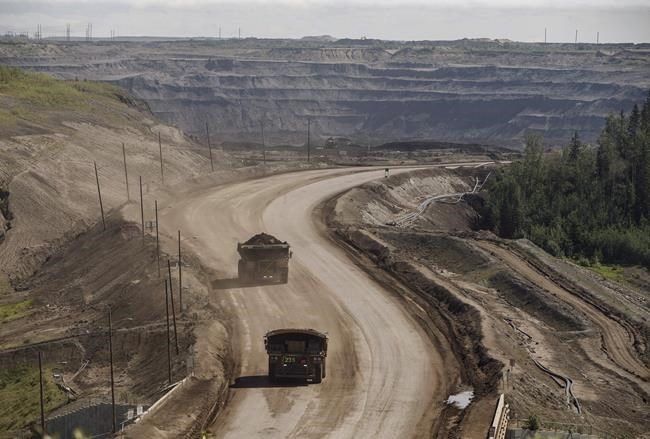EDMONTON — Alberta's New Democrat Opposition says a government review of the program that's supposed to ensure oilsands companies can clean up their mines was conducted too privately and should have been done in public.
Environment critic Marlin Schmidt said Albertans now know even less than before the review of the Mine Financial Security Program began.
"Given how much money is at stake and how important this sector is to our economy, the fact the public was completely shut out of this process is really concerning," he said.
Alberta's United Conservative Party government wrapped up consultations this month on how industry financially backstops its cleanup obligations.
It held a yearlong series of meetings with industry and First Nations. There were no public hearings.
Estimates of the environmental liability of the mines and their tailings ponds vary widely. Official figures peg it at $34 billion, while an internal estimate from Alberta Energy Regulator staff put it at $130 billion.
The government currently holds no more than four per cent of the security required for a cleanup. Even that level of public disclosure has now been obscured, Schmidt said.
Schmidt said that during the program review, the government changed its rules on how companies must ensure their cleanup obligations can be met. Instead of relying on lines of credit or other forms of capital, the totals of which were made public, companies can now provide demand bonds from insurance companies.
The number of companies using such bonds and the size of the liability they insure against is not released, even on an aggregate basis.
"We need to have a simple accounting of how much money is available to cover liability," Schmidt said. "If the government and industry won't tell us how much of the liability these demand bonds cover, how will we know if the financial security program is working?"
Thomas Schneider, associate professor of accounting at Toronto Metropolitan University, said accepting insurance instead of requiring resources to be set aside allows producers to delay reserving the billions of dollars the cleanup would take even as some mines approach end of life.
The program review was called after two scathing reports from Alberta's auditor general. But First Nations consulted during the review have said the government's current direction holds on to most of the old program's mistakes and makes some new ones — including failing to account for changes in the oil market as countries move to low-carbon economies.
An analysis of the government's direction by University of Alberta energy economist Andrew Leach, who acted as a consultant to the First Nations, concluded the assumptions used in the government's modelling of the industry's future "provide a false and dangerous sense of security."
A spokesman for Alberta Environment and Protected Areas said the government expects to complete its review this year and begin implementing changes — "if any" — in 2024.
In a separate email, another spokesman said public engagement was encouraged through a website and a number of organizations provided submissions.
Schmidt said the process needs to open up. Proprietary business information can be kept confidential, he said.
"We're generally good at what needs to be protected and what doesn't," he said.
"Every mine, at some point, will have to end its operations. We need to have a plan for making sure there's enough money in the bank to cover those liabilities.
"We can't make that mistake, especially considering how big the bill to taxpayers will be if we get this wrong."
This report by The Canadian Press was first published Jan. 27, 2023.
Bob Weber, The Canadian Press
Note to readers: This is a corrected story. A previous version said there was no public input in the review.




